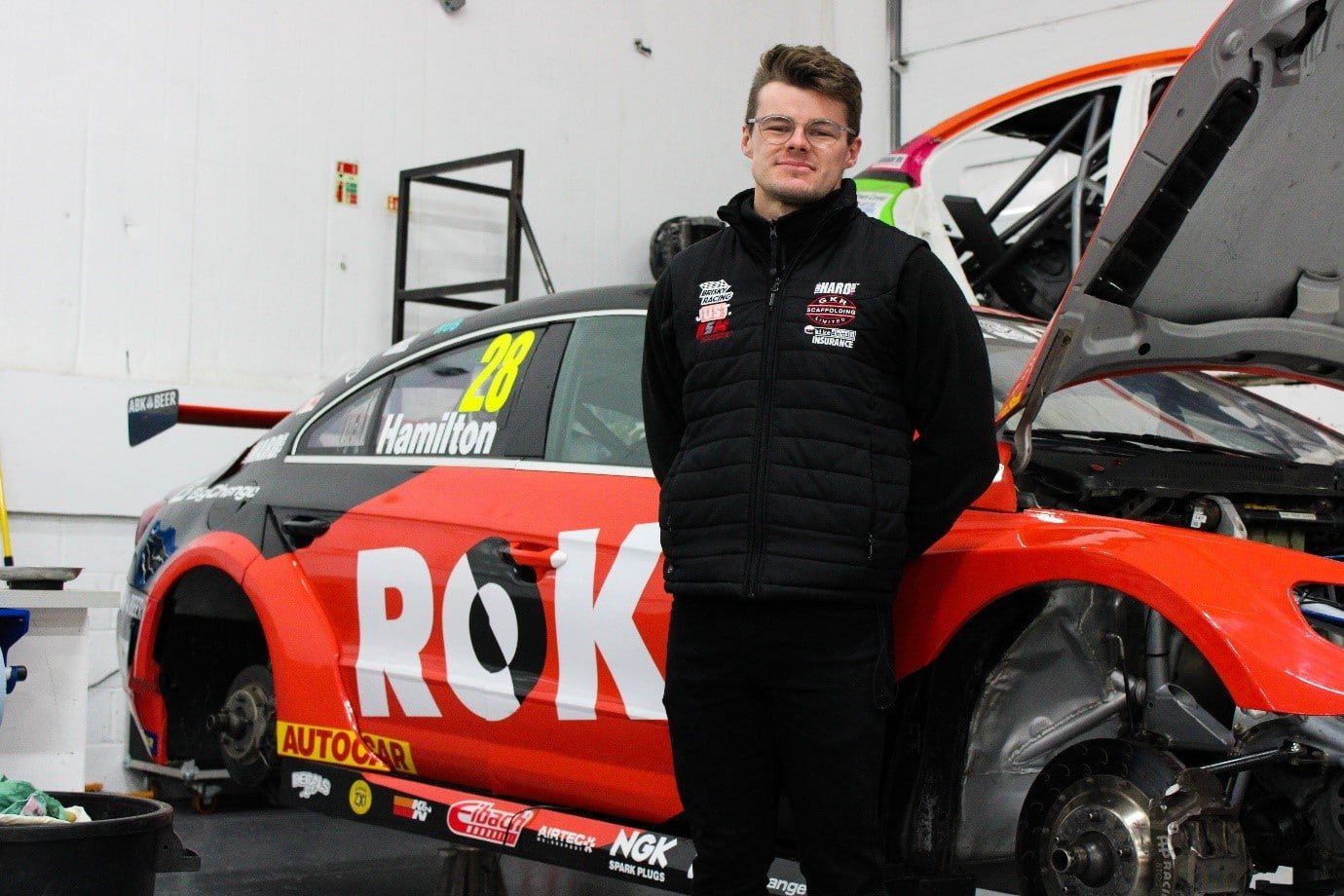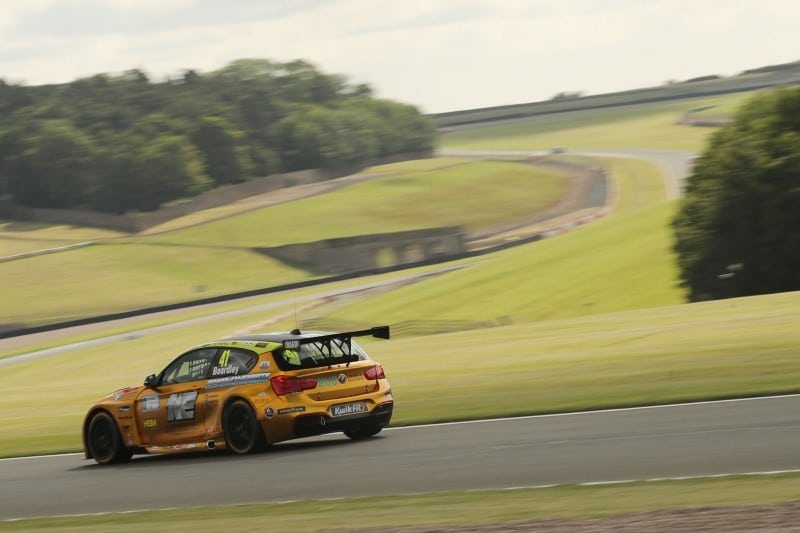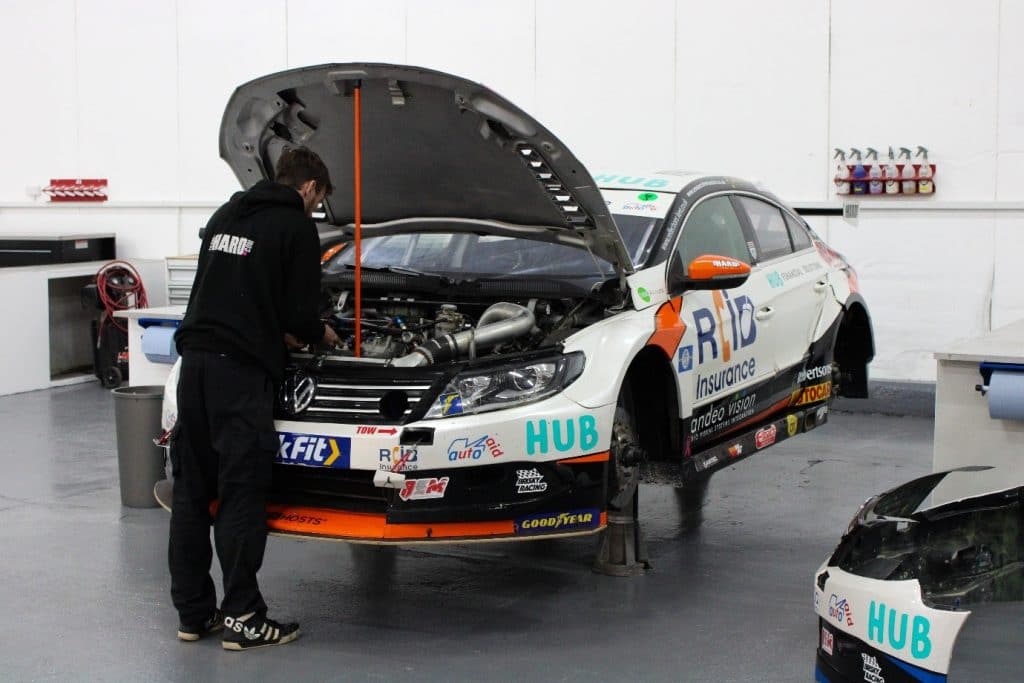
The four-month-long red flag: COVID-19’s effect on British motorsport
There is no denying 2020 was a truly arduous year. The emergence of the coronavirus has negatively affected almost everyone in the UK, altering lives in an unprecedented manner, and it could be argued that few people know this better than those in the British motorsport scene.
Famed for its communal and supportive nature compared to international equivalents, the UK is steeped in rich racing heritage. Frequently deemed as a familial business, the sport has faced a plethora of unique challenges compared to others in the midst of COVID-19.
The most pressing of these has been money, or, to be more precise, the severe lack of it. Unlike the world-leading Formula 1, securing funds at a national level is the hardest aspect for every racer and team; this was heightened dramatically in the wake of the virus.
In an attempt to curb this, Motorsport UK, the country’s governing body for racing, announced on 16 April a £1m relief package to support those during the national lockdown. By distributing the cash to grassroots activities, the funds hoped to ‘aid recovery towards a strong and sustainable future’.
However, with more than 40,000 people employed in British motorsport receiving the support, the key source of income still remained within sponsorship.
By bringing companies onboard through on-car advertising, exposure on television and exclusive passes for events, revenue to race and pay staff can be exchanged. As a result of the pandemic, with businesses losing money hand over fist, a reluctance to invest in sponsorship naturally ensued.
In 2017, the total UK television audience for the British Touring Car Championship (BTCC) reached a staggering 19.4 million people, with more than 11 million monthly impressions on the sport’s website, which is attractive for company-backing.
Yet, trackside attendance in the same year totalled 385,000 people – in 2020, it was zero, making it clear as to why sponsors were hesitant to get involved.

One driver who is well aware of this is MINI CHALLENGE UK competitor Max Coates. He said:
“COVID-19 affected our preparations in a few ways. For one, it made it more difficult to activate sponsorships, by not having the sponsors and their guests at the events and no crowds.”
As a result of the BTCC, and its associated series in the TOCA package, being classed as an ‘Elite’ sport by the Government, no fans were allowed to attend race weekends, including sponsors and other team investors.
However, there were no other national events that fell within the ‘Elite’ bracket throughout the year, thus causing confusion between competitors and teams alike. Coates explains:
“I was angry because the British GT was classified as ‘non-Elite’, and was therefore allowed crowds, but then considered ‘Elite’ when they wanted to run their final event of the year.
“To me, they’ve had the best of both worlds, and for us to have been able to run with crowds or sponsors present, it would have possibly enabled us to develop and enhance relationships into 2021, instead of struggling to justify people’s involvement with the sport. To see another championship allow this is quite confusing.”
Racing at events is not Coates’ only source of remuneration – like many others, driver coaching is a fundamental and necessary part of his career, yielding much needed revenue. However, during lockdown, this was also cancelled, and consequently a large number of drivers lost this income too.
For Lydia Walmsley, an 18-year-old competitor in the MINI CHALLENGE Pro class, COVID-19 has stopped her from progressing to this stage, forcing a reliable salary to be on hold. She said:
“Unfortunately, COVID-19 put a stop to me being able to take my test for the ARDS Instructors licence, which means that I’m stuck in a situation where I cannot progress into this field of work until restrictions are lifted and the courses re-commence.”
Despite all of this, the national lockdown wasn’t entirely bad news, and did in fact bring positivity to some in British motorsport.
Ty Cuthbert, a 12-year-old karter in the Super 1 National Championships, enjoyed a lucrative summer in 2020. Through extensive work on social media, bolstering his presence within the motorsport community, Ty has drawn in big-name sponsors such as Buildbase and GoBobby.com.
Nonetheless, this has not been enough to quench young Cuthbert’s thirst for racing. His dad, Chris, mentions other aspects of motorsport which have been affected by COVID-19:
“It’s always been a family thing to go karting. It’s a full weekend – you’re up at five in the morning, you’re off to hotels, you’re away for the weekend and it’s very exciting. It’s like a holiday.
“You’re shattered, but the thrill of karting as a parent – your heart never stops pounding. You’re on your feet and doing something all day, and there’s so many great families to talk to. It’s a really special part of our life that we’ve missed.”
As previously noted, and emphasised by Cuthbert, motorsport in the UK is more than just a business – it drives families. Sadly, evidence now shows these small operations are the ones who have been most severely affected by COVID-19.
Speedworks Motorsport, a Toyota-supported team in the BTCC, has rarely batted an eyelid financially during 2020, thanks to its fruitful manufacture-backing. The team has even added another £250,000+ touring car to its line-up in 2021.
Andy Cakebread, an engineer for the team, said:
“Speedworks didn’t really suffer too much as we were a very tight bubble – we had 90+% parts stock to feed the projects we had on the go. We were happy that we could pull the tight, three-month schedule off from the outset, and everyone in the team embraced the task in hand.”
However, the same cannot be said for the independent Team HARD. Racing, who also compete in the BTCC, as well as more than 10 other British series.

Gary Allen, the team’s General Manager, explained:
“I guess the biggest challenge was cost, because we are a small, family-run team. We don’t have personal wealth – all is done from sponsorship and drivers.
“We had some sponsors’ businesses that were getting very badly affected by COVID-19, so obviously they couldn’t continue with their sponsorship. That’s probably the biggest challenge we had.”
Full interview here: https://www.youtube.com/watch?v=IrFEPDVMrHA&t
Monetary woes also affected the independent Power Maxed Racing, who canned its 2020 BTCC campaign early in the lockdown. However, in order to race in 2021, the team was forced to run one of its cars for most of the season.
Surprisingly, through this, many great stories arose – drivers Jade Edwards and Jess Hawkins made their debuts in the pinnacle of British motorsport, making it the first year since 2007 in which female competitors featured.
Louise Goodman, one of ITV 4’s senior motorsport broadcasters, said on the matter:
“The visibility is always important. It’s also important to say they didn’t get there because they’re female – they were two drivers who got there on merit.”
Full interview here: https://www.youtube.com/watch?v=zAvTADEwXRc&t
As one might expect, it was a great shame for these debuts to be made at empty venues. Due to the BTCC being labelled an ‘Elite’ sport, spectators were not permitted to the races throughout the season, and, as Rich Hoit, founder of popular motorsport page ‘The Hard Compound’, explains, fans are crucial to the sport. He said:
“The fans are so important in the BTCC as they are so engaged with the drivers, and really passionate about the racers and teams they follow.
“The fans give drivers a lift trackside – let’s hope we can get back in 2021!”
This is reiterated by 2020’s BTCC champion, Ash Sutton, captioning his title win on Instagram: “Gutted you guys weren’t there to celebrate with us!”
It could be argued that this is how the year should be rounded out. It is strongly rumoured that TOCA is planning to reintroduce fans to events in 2021, and this offers substantial hope for everyone involved.
COVID-19 tried its hardest to stop British motorsport from going ahead, but, in many cases, it’s clear the strong racing community came together and prevailed.
In spite of the pandemic, 2020 saw a new deal penned by ITV to broadcast the BTCC for a further five years, notching up a record 25 years of continual, free-to-view racing, cementing motorsport’s prominence within the country.
Despite it being the most challenging year for many in the sport, there is light at the end of the tunnel, and a very bright one at that. With the Government classing the BTCC, its supporting series, and other categories such as the British GT as ‘Elite’ sports, the ever-growing popularity of British motorsport is obvious for all to see.



![Private: [ID: 71rYi-xncgM] Youtube Automatic](https://motorradio-xijqc.projectbeta.co.uk/wp-content/uploads/2024/08/private-id-71ryi-xncgm-youtube-a-1-360x203.jpg)
![Private: [ID: 1SfHxvC8Doo] Youtube Automatic](https://motorradio-xijqc.projectbeta.co.uk/wp-content/uploads/2024/07/private-id-1sfhxvc8doo-youtube-a-1.jpg)
![Private: [ID: H6XRkf6kROQ] Youtube Automatic](https://motorradio-xijqc.projectbeta.co.uk/wp-content/uploads/2024/07/private-id-h6xrkf6kroq-youtube-a-1-360x203.jpg)
![Private: [ID: Kb6w-qAmKls] Youtube Automatic](https://motorradio-xijqc.projectbeta.co.uk/wp-content/uploads/2023/12/private-id-kb6w-qamkls-youtube-a-360x203.jpg)
![Private: [ID: CcpwYw20k3k] Youtube Automatic](https://motorradio-xijqc.projectbeta.co.uk/wp-content/uploads/2024/07/private-id-ccpwyw20k3k-youtube-a-360x203.jpg)

![[ID: x1SiRC5jhW4] Youtube Automatic](https://motorradio-xijqc.projectbeta.co.uk/wp-content/uploads/2022/04/id-x1sirc5jhw4-youtube-automatic-360x203.jpg)
![[ID: lMZ8lAeLubk] Youtube Automatic](https://motorradio-xijqc.projectbeta.co.uk/wp-content/uploads/2022/04/id-lmz8laelubk-youtube-automatic-360x203.jpg)
![[ID: GAYCcnqyFo4] Youtube Automatic](https://motorradio-xijqc.projectbeta.co.uk/wp-content/uploads/2022/04/id-gayccnqyfo4-youtube-automatic-360x203.jpg)
![[ID: Gg142H296QY] Youtube Automatic](https://motorradio-xijqc.projectbeta.co.uk/wp-content/uploads/2022/04/id-gg142h296qy-youtube-automatic-360x203.jpg)
![Private: [ID: 71rYi-xncgM] Youtube Automatic](https://motorradio-xijqc.projectbeta.co.uk/wp-content/uploads/2024/08/private-id-71ryi-xncgm-youtube-a-1-236x133.jpg)
![Private: [ID: H6XRkf6kROQ] Youtube Automatic](https://motorradio-xijqc.projectbeta.co.uk/wp-content/uploads/2024/07/private-id-h6xrkf6kroq-youtube-a-1-236x133.jpg)
![Private: [ID: Kb6w-qAmKls] Youtube Automatic](https://motorradio-xijqc.projectbeta.co.uk/wp-content/uploads/2023/12/private-id-kb6w-qamkls-youtube-a-236x133.jpg)
![Private: [ID: nc-8g6ROCe8] Youtube Automatic](https://motorradio-xijqc.projectbeta.co.uk/wp-content/uploads/2023/11/private-id-nc-8g6roce8-youtube-a-236x133.jpg)
![Private: [ID: wWrhfjOQuIc] Youtube Automatic](https://motorradio-xijqc.projectbeta.co.uk/wp-content/uploads/2023/11/private-id-wwrhfjoquic-youtube-a-236x133.jpg)